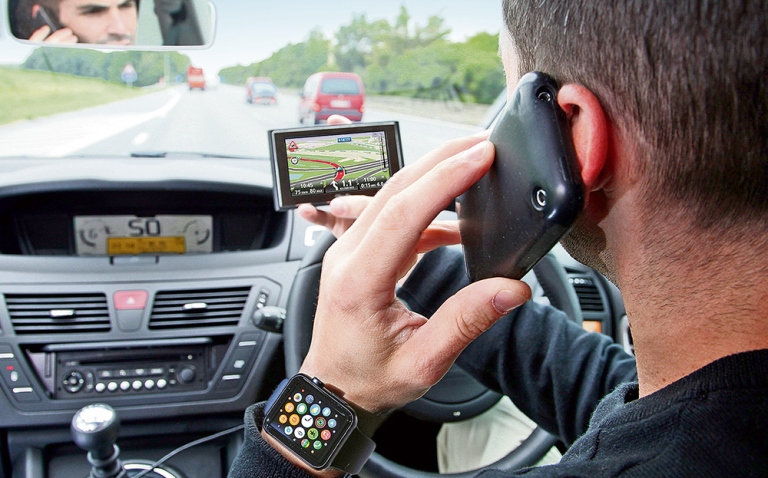
OFF THE WIRE
by David Geer
In the last year’s statistics showed that technology is taking lives as teens and millennials are using their mobile devices while driving. According to Pew Research, the average American teen sends 60 texts in a day, which means lots of them might be read or written behind the wheel. The number of teens killed while texting and driving is also rising, painting a bleak image.
Another report from the American Automobile Association revealed that six in ten car accidents involving teens are caused by using a mobile device.
Even a Little Apple Watch Causes Big Problems!!
According to Michael Ehline, famous car accident attorney, and partner of Ehline law firm The Apple Watch is very popular. Millions use it to keep track of their daily walks or play their favorite music. When paired with an iPhone the device is very powerful. However, when used behind a wheel it can be a matter of life or death.The large number of these watches on drivers’ wrists is a unique threat and causes many car accidents and injuries. It is up to us to figure out how to reduce the number of accidents caused by this device. However, these studies also showed that distracted driving can be avoided and the ways to prevent a crash or a road incident are quite simple.
Simply turn it off
The best solution is to turn off the device. Parents can lead by example on this one, but if your teen doesn’t want to turn off the phone, there is another way to solve the problem. Placing the phone out of reach is just as effective as turning it off. When you can’t pick it up, you will have to either give up using it or stop the car, which are both going to keep you safe.
Teaching your teen safety measures
If you are trying to teach your teen to stop using the phone, it’s important to show him that each time you have to use the phone or another device, you stop the car. Make a habit of doing this, so your teen will have a role model. Even when you don’t really have to use the phone, but you want to give an example, do this exercise. It’s better to start doing this before your child gets the driving license, so he or she will already have a strong idea of what’s the norm on the road.
No more hands-free devices
Hands-free devices allow drivers to use the phone legally, but they don’t provide any safety. Studies revealed that using a hands-free device leads to something called cognitive distraction when your eyes are on the road, but you don’t actually notice the dangers. Moreover, using the hands-free encourages mobile device usage on the road.
Education starts from parents
Millennials are now old enough to know the dangers of distracted driving, yet they fail to actually take them into account. This has to do with the fact their parents, who were not using the phone while driving, couldn’t teach them how to avoid this distraction.As the parent of a teen driver, you have the opportunity to educate him or her on the real dangers. Teens tend to see laws as something they can break, so explain to your child that he or she must care for their own safety first, then the law. Yes, distracted driving is illegal because it leads to death, but the teen must know this from his parents, in order to understand the risks.
Anti-tech devices
Despite everything, teens are prone to ignore all the risks and continue to use the mobile devices behind the wheel. To prevent this, companies started to develop technological solutions, which turn off the phone when the owner enters the car. Once installed, these systems can’t be turned off by the teen, so the parent can be sure the phone will be off during the whole trip.
This rather extreme solution might have its own faults, so the best way to protect yourself and your child is to become aware of the dangers of distracted driving and stop using the devices. After all, there is no call more important than your own life.
This post is part of our contributor series. It is written and published independently of TNW.




























































































































